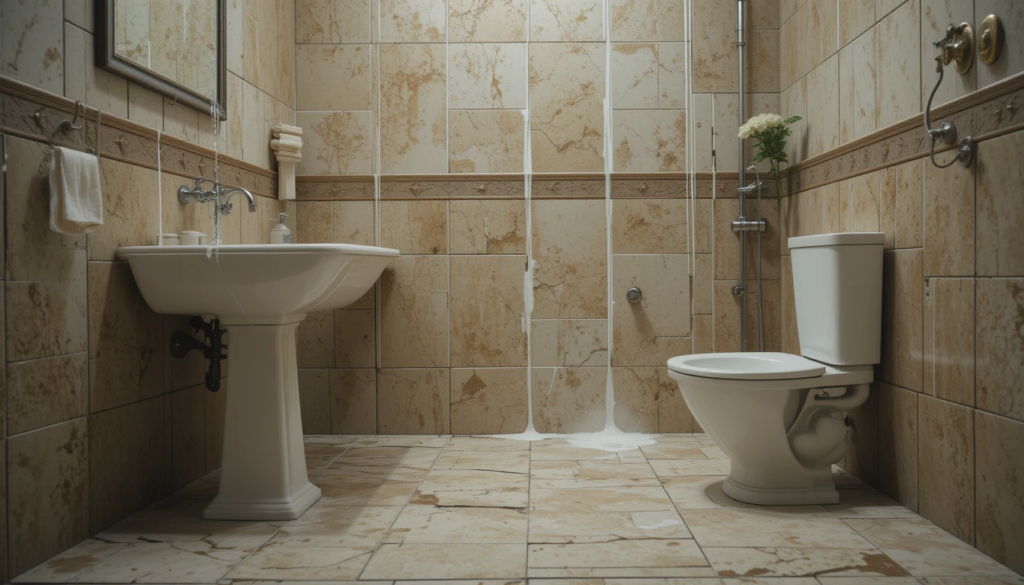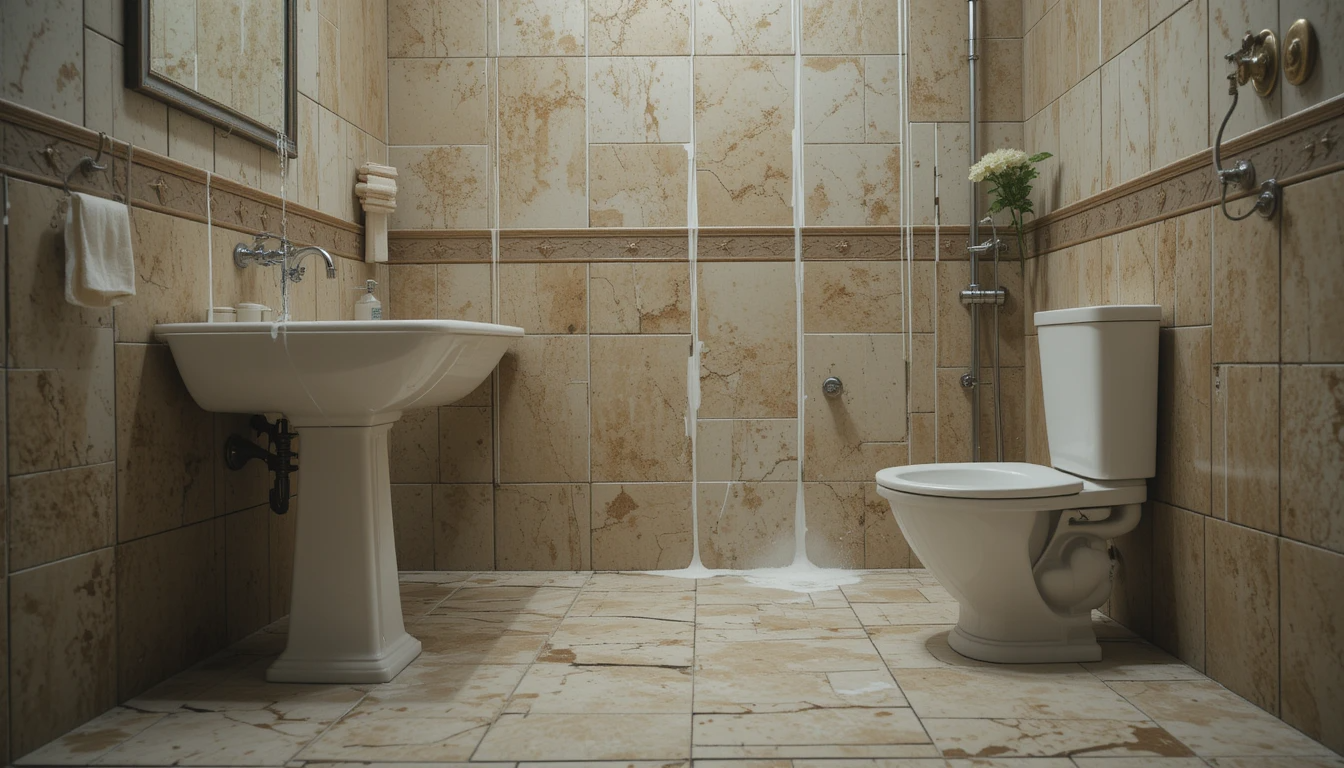Posts in 2025

Understanding Different Types of Plumbing Emergencies.
Plumbing emergencies can strike at any time, often when you least expect them. Whether it’s a burst pipe flooding your home or a blocked toilet causing unsanitary conditions, these situations can range from minor inconveniences to major disasters. Understanding the different types of plumbing emergencies, how to identify them, and what to do when they occur can save you time, money, and stress. This guide will walk you through everything you need to know about plumbing emergencies in a simple, non-technical way.
What Is a Plumbing Emergency?
A plumbing emergency is any situation involving your plumbing system that poses an immediate risk to your health, safety, or property. These emergencies often require urgent attention from a professional plumber to prevent further damage or danger. Some issues, like a dripping faucet, can wait, while others, like a gas leak, need immediate action.
Podcast
Common Types of Plumbing Emergencies
Here are some of the most common plumbing emergencies you might encounter:
1. Burst Pipes
- What Happens: A burst pipe can release a large amount of water in a short time, causing significant damage to your home.
- What to Do: Turn off the main water supply immediately to stop the flow of water. Use towels or buckets to contain the leak and call a plumber right away.
- Prevention Tip: Regularly inspect pipes for signs of wear, especially in colder months when freezing can cause pipes to burst.
2. Severe Leaks
- What Happens: Leaks that can’t be contained or isolated can lead to water damage, mold growth, and higher water bills.
- What to Do: Try to shut off the water supply to the affected area. If you can’t, turn off the main water valve and call a plumber.
- Prevention Tip: Check for leaks around faucets, under sinks, and near appliances regularly.
3. Gas Leaks
- What Happens: Gas leaks are extremely dangerous and can lead to explosions or health issues due to inhalation.
- What to Do: If you smell gas, turn off gas appliances, open windows for ventilation, and evacuate the area. Call a professional immediately.
- Prevention Tip: Have your gas lines inspected regularly and install a gas detector for early warning.
4. Blocked Drains
- What Happens: Blocked drains can cause water to back up, leading to overflowing sinks, toilets, or even sewage backups.
- What to Do: Avoid using the affected drain and try using a plunger. If the blockage persists, call a plumber.
- Prevention Tip: Avoid flushing non-flushable items like wipes, sanitary products, or grease down the drain.
5. Blocked or Overflowing Toilets
- What Happens: A blocked toilet can overflow, creating unsanitary conditions and potential water damage.
- What to Do: Stop flushing the toilet and try using a plunger. If the problem continues, call a plumber.
- Prevention Tip: Only flush toilet paper and avoid disposing of large or non-biodegradable items in the toilet.
6. No Water or No Hot Water
- What Happens: A complete lack of water or hot water can disrupt daily activities like cooking, cleaning, and bathing.
- What to Do: Check if the issue is isolated to your home or affecting the entire area. If it’s just your home, call a plumber.
- Prevention Tip: Schedule regular maintenance for your water heater and plumbing system.
7. Burst or Damaged Water Heater
- What Happens: A burst water heater can flood your home and leave you without hot water.
- What to Do: Turn off the water supply and power to the heater, then call a plumber.
- Prevention Tip: Replace old water heaters before they fail and have them inspected annually.
8. Roof Leaks
- What Happens: Major roof leaks can damage ceilings, walls, and insulation, leading to mold or rot.
- What to Do: Place buckets to catch water and move valuables out of the way. Call a professional to fix the leak.
- Prevention Tip: Inspect your roof regularly, especially after storms, and repair any damage promptly.
9. Faulty Electrical Wiring
- What Happens: Plumbing issues near electrical systems can cause short circuits or fires.
- What to Do: Turn off the power supply to the affected area and call both a plumber and an electrician.
- Prevention Tip: Ensure all electrical wiring near plumbing is properly insulated and inspected.
How to Identify a Plumbing Emergency
Not every plumbing issue is an emergency. Here are some questions to help you decide:
- Can the problem be isolated? For example, can you stop the water flow to a leaking faucet?
- Are vulnerable people at risk? For instance, are children or elderly individuals in danger?
- Is there a risk to public health? Such as raw sewage backing up into your home.
- Is there a risk of water damage? Could the issue cause flooding or structural damage?
- Can you smell gas? Gas leaks are always an emergency.
If the answer to any of these questions is “yes,” it’s likely a plumbing emergency, and you should call a professional immediately.
What to Do During a Plumbing Emergency
While waiting for a plumber, take these steps to minimize damage and ensure safety:
- Shut Off the Water Supply or Gas Supply: Locate the main water valve and turn it off to stop the flow of water.
- Contain the Leak: Use towels, buckets, or containers to catch water and prevent it from spreading.
- Turn Off Power: If water is near electrical outlets or appliances, turn off the power to avoid electrocution.
- Ensure Safety: If there’s a gas leak or risk of flooding, evacuate the area and call for help.
- Remove Valuables: Move furniture, electronics, and other valuables away from the affected area to prevent damage.
Preventing Plumbing Emergencies
Prevention is always better than dealing with an emergency. Here are some tips to keep your plumbing system in good shape:
- Regular Inspections: Check pipes, faucets, and appliances for signs of wear or damage.
- Proper Maintenance: Fix minor issues like small leaks or slow drains before they become major problems.
- Responsible Use: Avoid flushing inappropriate items down the toilet and dispose of grease properly.
- Insulate Pipes: Protect pipes in cold areas to prevent freezing and bursting.
- Schedule Professional Checkups: Have a plumber inspect your system annually to catch potential issues early.
Choosing a Reliable Plumber
When faced with a plumbing emergency, it’s important to choose a trustworthy professional. Here’s what to look for:
- Prompt Response: A good emergency plumber should be available 24/7 and respond quickly.
- Accreditation: Look for plumbers who are licensed and members of recognized associations.
- Transparent Pricing: Ensure the plumber provides clear quotes and communicates costs upfront.
- Aftercare Services: Choose a plumber who offers follow-up services to ensure the problem is fully resolved.
Final Thoughts Types of Plumbing Emergencies.Types of Plumbing Emergencies.
Plumbing emergencies can be stressful, but knowing how to identify and handle them can make all the difference. By understanding the common types of emergencies, taking preventative measures, and knowing when to call a professional, you can protect your home and family from potential damage and danger. Remember, when in doubt, it’s always better to seek help sooner rather than later. Stay prepared, stay safe, and keep your plumbing system in top shape!
